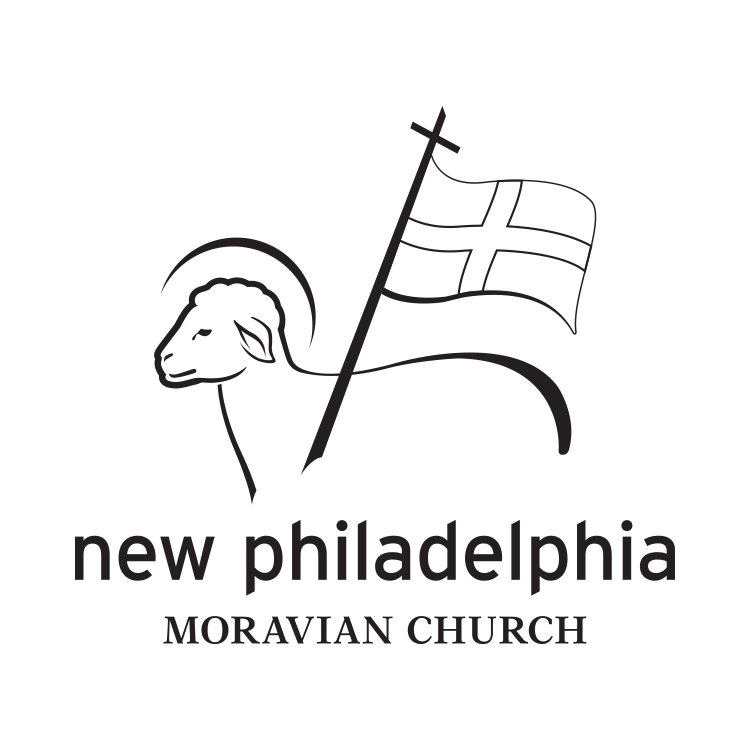But This Bunch Was Different – Rev. Joe Moore
Romans 8:12-25
New Philadelphia Moravian
July 23, 2017
This week’s sermon was supposed to be a “Laurel Ridge” sermon. Every year when I get back from being at camp, I have lots of good sermon material. There are so many amazing things that happen during that week, that I can’t wait to share it. And that was my plan as I was preparing to preach this week. Senior High Camp had ended just over a week ago and I had time to reflect on the week. Being there with the young people of our church and from all over had filled me with hope; hope for the future of our church, of the Moravian Church, and even for the world. And the Romans passage spoke about hope. But, Paul wrote about hope that is seen is not really hope. And the hope that I gained from Senior High Camp is definitely a hope that can be seen. So I decided that I should maybe look at something else to preach on today. Fortunately, there is another big event in the life of our church.
Today we celebrate the 171st anniversary of NPMC. The brief history of our congregation that is printed in our bulletin is pretty interesting. Like many of the Moravian congregations in this area, it was started as a Sunday School. But NPMC was one of the first. It began with a group gathering in the Philadelphia school house. The Moravians probably called it “New” Philadelphia to distinguish it from the “old” Philadelphia in Pennsylvania, where the Moravians had long been serving and working. At the time New Philadelphia was beginning, the Moravian leadership was actively discouraging expansion of the Moravian Church. This may sound odd now, but at the time the Moravians were concerned with making more Christians, but not necessarily more Moravians. The last two congregations to be formed in NC were started over 60 years before the Sunday School at New Philadelphia began. So not much should have come out of the work at New Philadelphia.
“But this bunch was different.” I love that. It’s just a little throw-away line in the short history of our congregation, but it really says a lot about who this congregation was and is. “But this bunch was different.” I wonder how many times over the last 171 years that others in the Moravian Church have thought that about New Philadelphia. This bunch was different in the 1840’s and we are different today. I think that as we reflect on our past, we can learn a lot about our present, and even strengthen our hope for the future. The Moravians of this community in 1846 would let nothing stand in their way of becoming who God had created them to be. They would let nothing stand in the way of loving each other into becoming who God has created them to be. And the Moravians of this congregation today will let nothing stand in our way of becoming who God has created us to be. We will let nothing stand in our way of loving each other into becoming who God has created us to be.
To become who God has created us to be means that we must first claim who we already are. As Paul writes in his letter to the Romans “…all who are led by the Spirit of God are children of God.” We are the children of God. We are chosen by God to be his children. We are adopted by God to become members of God’s family. Adoption is an interesting idea because it includes a choice. Adopting parents CHOOSE the child they adopt and in many cases, adopted children CHOOSE the parents who adopt them.
God CHOOSES us as his children. We CHOOSE God as our parent. This mutual choice signals a change in status, a change in relationship. There may be some people who think that the notion of adoption somehow lessens the relationship between parent and child, that somehow the bond of love isn’t as strong as it is between a child and their “real” parents, that a family formed by adoption isn’t a true family. But let me assure you that nothing could be further from the truth.
For those of you who don’t know, Kelly and I are adoptive parents. Our son Zach, is adopted. Kelly may not have given birth to him, he may not be our “natural” child; but from the moment we first held him, when he was less than an hour old, he has been ours. And I can’t imagine how it would be possible for us to love him any more than we do. I can’t imagine how much more “real” our family could be. In fact, there have actually been times when I have forgotten that he is adopted. Because the details of how we became a family don’t matter nearly as much as the fact that we are a family. We chose each other, just as God chooses each of us. We became a family by choice.
We often speak of the church as a family. Back in 1846, I’m sure that the members of NPMC even referred to each other as Brother and Sister, or since they likely spoke on German “Bruder” and “Schwester” The church as the family of God is that important and it is that literal. We come together, united by God’s love for us. We come together as the adopted- the CHOSEN children of a loving Father. Each one of us is loved- unconditionally and completely. Each one of us is loved- for who we are and loved into who we are called to become. And each one of us is called to love- to love God and to love each other. To love each other in the same way that we are loved.
And not only in the same way that we are loved by each other. For our love is human love, it is flawed and imperfect love. It is love that struggles to be patient and kind. It is love that doesn’t have much trouble with being envious or boastful or arrogant or rude. It is an imperfect love. The love that we have for each other is not always the same as the love that God has for us. But the love that God has for us is the love that God wants us to have for each other. It is the love that Jesus COMMANDS us to have for each other. “I give you a new commandment, that you love one another. Just as I have loved you, you also should love one another.”
So here we are. God’s family at NPMC. Chosen by God as his children, led by God’s spirit into his family. Here we are, loved by God- unconditionally and completely. And called by God to love each other in the same way. We are God’s family. And we want to love each other, even as God loves us. But it isn’t always easy. We can’t just say it and make it so. Because being a family can be difficult. Even the best of families have struggles. Being God’s family can be difficult, even the best of churches have struggles.
The church struggles to love. This church and ALL churches struggle to love. Even though God chooses us and we choose God. Even though we choose each other, we still struggle to love. We struggle when we insist on our own way. We struggle when we were are irritable and we resentful. We struggle when we are afraid. I think that this is the biggest source of our struggles. As a family and as a church family, we struggle when we are afraid. When we are afraid of the unknown, when we are afraid of things changing, when we are afraid of things being different. And when we are afraid, we can’t love. We can’t love God and we surely can’t love each other.
In his first letter, John says “There is no fear in love, but perfect love casts out fear; for fear has to do with punishment, and whoever fears has not reached perfection in love. We love because he first loved us.” It’s almost a vicious circle. We can’t love when we are afraid, there is no fear in love, but it is perfect love that casts out fear, we need to love to cast out our fears. And that’s where this whole idea of family comes in. We are called to love each other, even when we are afraid. You are called to love me when I am afraid and I am called to love you when you are afraid. We are called to love each other in spite of our fears. And we are called to love each other OUT of our fears. We are called to love each other with the same perfect love that God has for us.
We need to love each other out of our fears. When I say that I mean that we need to love each other so that we can help each other to overcome our fears. I can help you overcome your fears and you can help me overcome my fears. We can love each other into becoming who God has created us to be. Think for a moment about the people in this congregation. Think about someone who has loved you out of your fears and into who you are. It may have been someone like Mary Frances Sides, whose life we celebrated yesterday. Or it may have been someone sitting here right now, whose life we celebrate today. That is what a family is, that is what a church is, that is what we do. We love one another.
We need to be doing that now as much as we ever have. It is a scary time for the Church-capital “C” church. It seems harder now to be a Christian than it has been. There are so many things that challenge our faith, that shake our hope, that threaten our love. We are seeing the glory days of the church fade away. The church that our grandparents and parents knew and love has disappeared. The church that we remember from our childhood is gone. Things aren’t as they once were, things aren’t what we want them to be. We have many reasons to be afraid and we need to be loving each other out of our fears now as much as we ever have.
I started to say that we needed to be loving each other out of our fears now more than ever, but then I remember that this congregation has been through the Civil War, WWI, the Great Depression, WW2, Vietnam, 9/11. So as scary as it may seem today, we can also hold onto the hope that has seen this congregation through all of those dark and scary times. We can hold onto that hope and remember that as much as things around us have changed, still Jesus Christ is the same- yesterday, today, and forever.
That’s what this congregation has known for 171 years. We have known that Jesus is the same. Even as everything around us has changed, Jesus is the same. And through all of those changes, we have been loving each other. Even when it was hard to love each other, we have done it. Even when it is hard to love each other, we will do it. In that short history of our church, that’s printed in our bulletin, it reads “But once New Philadelphia got going it has never stopped.” We have never stopped loving each other, just as God loves us. Even when it was difficult, even when it was a struggle, our love has stayed strong. And our love will stay strong, even when it is difficult, even when it is a struggle.
This unending love- for God and for each other- is what allows us to get through the sufferings of the present time. It is what gets us to the glory that is about to be revealed to us. It is what gives us hope. “For in hope we were saved. Now hope that is seen is not hope. For who hopes for what is seen? But if we hope for what we do not see, we wait for it with patience.”
Those Moravians in “New” Philadelphia in 1846 didn’t know what the future would hold, they couldn’t see what was ahead of them. But they had hope. They had faith. They had love.They had the hope that comes with the knowledge that they were God’s children. They had faith in each other and in Jesus as their Lord and Savior. They had love- love for each other and love for God.
These Moravians here at New Philadelphia in 2017 don’t know what the future holds, we can’t see what lies ahead of us. But we too have hope, we have faith, and we have love. We have the hope that comes with the knowledge that we are God’s beloved children. We have faith in each other and in Jesus as our Lord and Savior. We have love- love for each other and love for God. This bunch is different. We have never stopped and we will never stop. The past is behind us and the future lies before us and God is among us.












